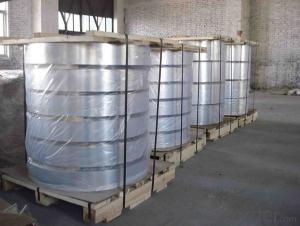Mill Finish Aluminium Coil for Curtain Wall 1XXX 3XXX 5XXX
- Loading Port:
- Shanghai
- Payment Terms:
- TT OR LC
- Min Order Qty:
- 5 m.t.
- Supply Capability:
- 1000 m.t./month
OKorder Service Pledge
OKorder Financial Service
You Might Also Like
Item specifice
Mill Finish Aluminium Coil for Curtain Wall 1XXX 3XXX 5XXX
1.Structure of Mill Finish Aluminium Coil for Curtain Wall 1XXX 3XXX 5XXX
Aluminum Sheets are strengthened and cut from raw materials with different alloys, such as AA5005, AA5052, etc. They are easy for processing in different shapes, good in intensity and can be quickly installed. Aluminium Sheets for Energy Saving Curtain Walls are good in energy saving, weather resistance, fire resistance, easy for maintenance and with many colors.
Aluminium Sheets for Energy Saving Curtain Walls are widely used in construction of metal walls, metal ceilings, car decoration, advertizing panels, etc.
2.Main Features of Mill Finish Aluminium Coil for Curtain Wall 1XXX 3XXX 5XXX
•High intensity
•Easy to be processed and shaped
•Weather resistance
•Anti-pollution & environment protection
3. Mill Finish Aluminium Coil for Curtain Wall 1XXX 3XXX 5XXX Images
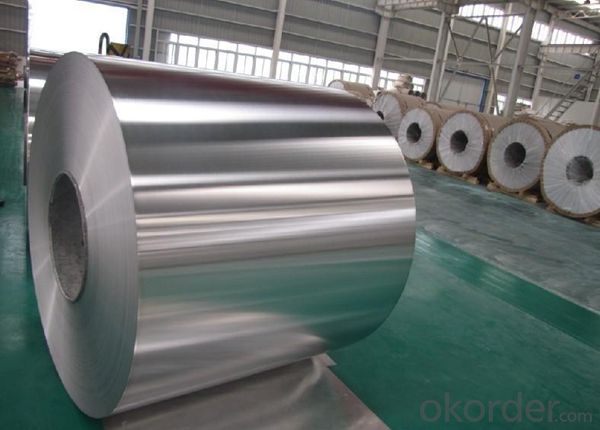
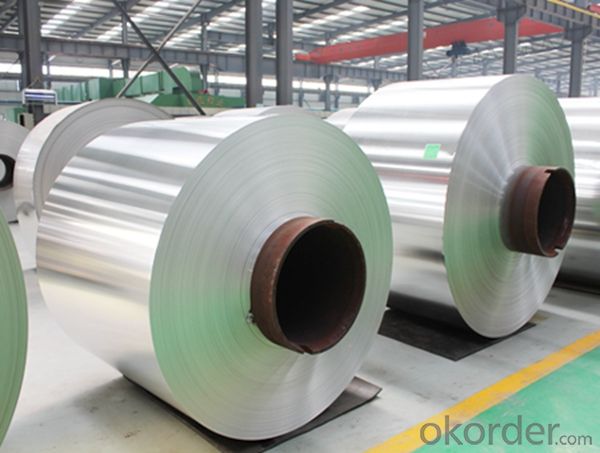
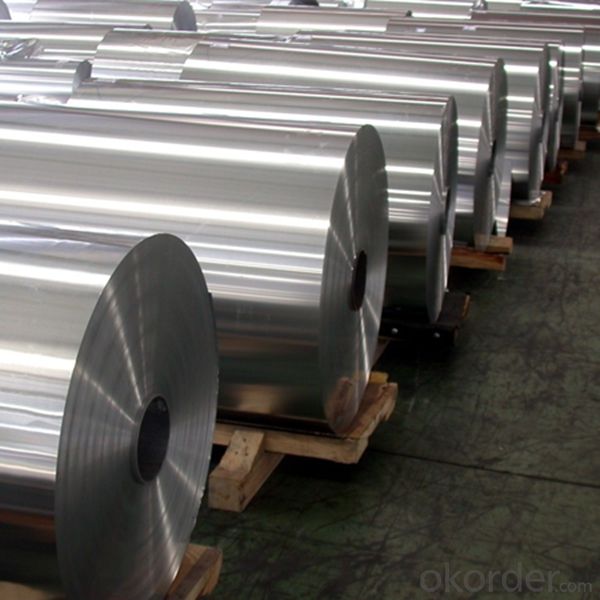
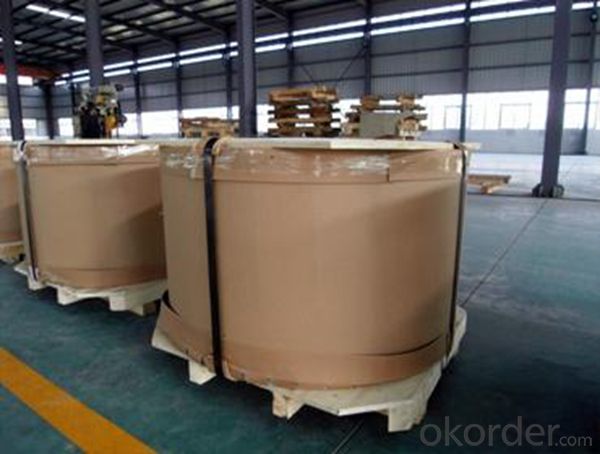
4.Specification of Mill Finish Aluminium Coil for Curtain Wall 1XXX 3XXX 5XXX
Alloy Number | AA5XXX 1XXX 3XXX |
Temper | H12, H14, H16, H18, H22, H24, H26, H32, HO, F |
Thickness | 0.1mm – 500mm |
Width | 10mm- 2200mm |
Standard | GB/T3880-2006, ASTM, ISO, EU standard |
5.FAQ of Mill Finish Aluminium Coil for Curtain Wall 1XXX 3XXX 5XXX
A.What about inspections to guarantee quality?
For each order for Aluminum Sheets with Mill Finished Surface AA5XXX, we will arrange strict inspection for raw materials, inspection during production and inspection for finished goods.
With requirement of customers, we also can arrange the third party inspection.
B.What about delivery?
We will put order for Aluminum Sheets with Mill Finished Surface AA5XXX in production schedule after order gets confirmed against copy of TT or L/C. Normally it takes about one month for production. Exact shipment schedule is different based on different sizes and quantity.
C.What is the MOQ?
5 tons for each size.
D. Where have you exported aluminium sheets?
We have exported aluminum sheets to many countries. Main markets include South East Asia, Middle East, North America, South America, etc.
- Q:Can aluminum coils be used for architectural applications?
- Yes, aluminum coils can be used for architectural applications. Aluminum is a versatile and lightweight material that offers excellent corrosion resistance, making it suitable for various architectural purposes. Aluminum coils can be used for exterior cladding, roofing, facades, and even interior applications like ceilings and wall panels. The coils can be easily formed, cut, and shaped, allowing for flexibility in design and creative architectural solutions. Additionally, aluminum coils can be coated with various finishes, such as paint or anodized coatings, to provide enhanced aesthetics and durability. Overall, aluminum coils are a popular choice in the architectural industry due to their versatility, durability, and aesthetic appeal.
- Q:I'm asking about the aluminum tabs on soda cans. I've heard mixed things.
- that is correct. salvage yards will be happy to buy you aluminum. 60 cents per pound sounds about right. what are you doing with your cans?
- Q:How to calculate the wall thickness with the gross weight of aluminum coil known?
- Gross weight*density=volume volume÷(aluminum sheet *width)=thickness
- Q:Why do we need aluminum when cooking in the oven at all.
- keeps the heat and moisture in without melting
- Q:Can aluminum coils be welded or joined together?
- Aluminum coils have the capability to be welded or connected together. Welding is a widely used approach for joining aluminum coils, especially in industries like automotive, aerospace, and construction. Multiple welding techniques, including TIG (tungsten inert gas) welding, MIG (metal inert gas) welding, and spot welding, can be utilized. These techniques enable the formation of robust and resilient connections between aluminum coils. Moreover, depending on the specific application needs, alternative joining methods like adhesive bonding or mechanical fastening can also be employed. By utilizing the appropriate welding or joining technique, aluminum coils can be effectively and securely joined together.
- Q:I have completely disassembled my aluminum bass boat and it is being sandblasted.I am restoring the boat and will be giving it a new paint job.What do you recommend in the way of primer,paint or anything else I need to know.I just don,t want to mess it up by using the wrong thing.Best answer gets a fishing trip in the same boat we are talking about. If you can make it here I will put you on some fish.Catfish,bream,crappie,bass or even saltwater fish.
- Whatever okorder
- Q:What are the different tempers of aluminum coils?
- The different tempers of aluminum coils refer to the varying levels of hardness and strength that can be achieved through different heat treatments. Aluminum coils can be subjected to various tempering processes to alter their physical and mechanical properties for specific applications. The most common tempers for aluminum coils include: 1. Soft (O Temper): This temper represents the annealed state of aluminum, where the metal is fully soft and easily formable. It has low strength but excellent ductility, making it suitable for applications that require extensive shaping or bending. 2. Half Hard (H14 Temper): This temper offers moderate strength and hardness, while still retaining some formability. It is used in applications where a balance between strength and flexibility is necessary, such as roofing or cladding. 3. Hard (H18 Temper): This temper provides high strength and hardness, with reduced formability. It is commonly used in applications that demand structural integrity and resistance to deformation, such as automotive parts or industrial equipment. 4. Extra Hard (H22, H24, H26 Temper): These tempers are achieved through additional cold working or strain hardening processes. They offer even higher strength and hardness but sacrifice some ductility. They are often utilized in applications that require enhanced mechanical properties, such as aerospace components or high-stress structural parts. 5. Tension Leveled (T Temper): This temper involves stretching the aluminum coil beyond its elastic limit and then stabilizing it. It helps to eliminate internal stresses and improve flatness, making it suitable for applications that demand precise dimensional stability, like electronic devices or architectural panels. It is important to note that there are many other tempers available for aluminum coils, each designed to meet specific requirements. The choice of temper depends on factors such as the intended application, desired mechanical properties, and processing capabilities.
- Q:What are the common sizes of aluminum coils available?
- The common sizes of aluminum coils available vary depending on the specific application and industry. However, some standard sizes include widths ranging from 36 inches (91 cm) to 72 inches (183 cm) and thicknesses between 0.019 inches (0.048 cm) to 0.125 inches (0.318 cm). These sizes are commonly used in industries such as construction, automotive, and manufacturing.
- Q:Can aluminum coils be used in the production of architectural panels?
- Yes, aluminum coils can be used in the production of architectural panels. Aluminum is a versatile material that is widely used in the construction industry due to its lightweight, durability, and corrosion resistance. Aluminum coils, which are typically made by rolling aluminum ingots into thin, flat sheets, provide a convenient and efficient way to produce architectural panels. Architectural panels, such as aluminum composite panels (ACP) or solid aluminum panels, are commonly used as cladding systems for buildings. These panels serve both functional and aesthetic purposes, providing weather protection, insulation, and enhancing the overall appearance of the structure. Aluminum coils are used in the production of architectural panels because they can be easily formed and shaped into various panel designs, such as flat sheets, corrugated panels, or custom profiles. The coils can be cut to size and then processed through various techniques, including bending, folding, punching, or welding, to create the desired panel shape and dimensions. Furthermore, aluminum coils offer a wide range of finishing options, such as anodizing, powder coating, or painting, which allows for customization and enhances the aesthetic appeal of architectural panels. These finishes not only provide color options but also improve the durability and weather resistance of the panels. In summary, aluminum coils are suitable for the production of architectural panels due to their versatility, durability, and aesthetic options. Their use in the construction industry has become increasingly popular, as they offer a cost-effective and efficient solution for creating high-quality panels that meet the functional and design requirements of modern architecture.
- Q:What are the different coil slitting options available for aluminum coils?
- There are several coil slitting options available for aluminum coils, including rotary slitting, oscillating slitting, and multi-blade slitting. These methods allow for precise and efficient cutting of the aluminum coils into narrower widths, making them suitable for various applications in industries such as automotive, construction, and packaging.
1. Manufacturer Overview |
|
|---|---|
| Location | |
| Year Established | |
| Annual Output Value | |
| Main Markets | |
| Company Certifications | |
2. Manufacturer Certificates |
|
|---|---|
| a) Certification Name | |
| Range | |
| Reference | |
| Validity Period | |
3. Manufacturer Capability |
|
|---|---|
| a)Trade Capacity | |
| Nearest Port | |
| Export Percentage | |
| No.of Employees in Trade Department | |
| Language Spoken: | |
| b)Factory Information | |
| Factory Size: | |
| No. of Production Lines | |
| Contract Manufacturing | |
| Product Price Range | |
Send your message to us
Mill Finish Aluminium Coil for Curtain Wall 1XXX 3XXX 5XXX
- Loading Port:
- Shanghai
- Payment Terms:
- TT OR LC
- Min Order Qty:
- 5 m.t.
- Supply Capability:
- 1000 m.t./month
OKorder Service Pledge
OKorder Financial Service
Similar products
New products
Hot products
Related keywords
